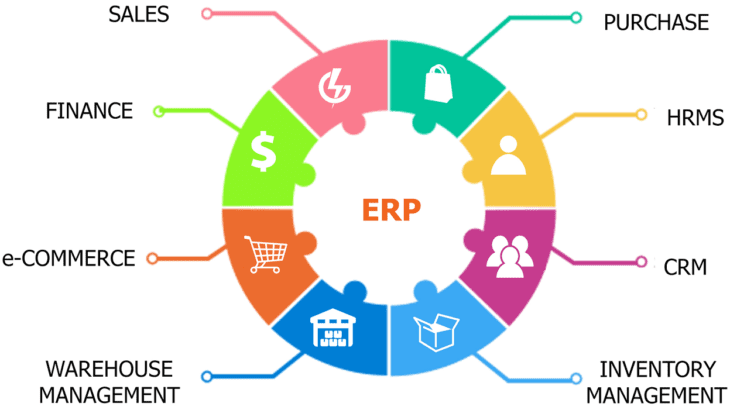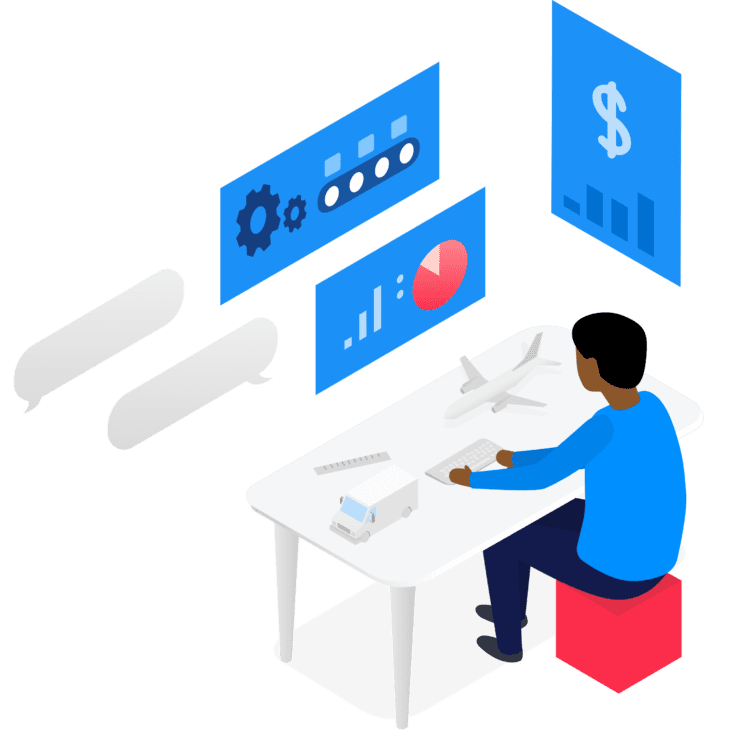For enterprises as well as for software development companies, it’s very important to keep up with the latest trends for enterprise resource planning systems and take advantage of proven engineering technologies available in the world. Each year special emphasis is laid on the customers’ preferences and industry focus. Let’s talk about the key trends of ERP software development, you can read more about that.
It would seem that ERP development has already reached its peak and there’s no room for innovation. However, the market demand and ever-changing customers’ needs resulted in the establishment of capacities that may submit new proposals to the market.
Contents
- Five Main Tendencies of ERP Development in 2019
- Trend 1 – Functionality above all else
- Trend 2 – Two-tier systems will enter the market
- Trend 3 – Small and midsize businesses will likely switch to custom accounting software
- Trend 4 – Enterprises will pay more attention to personal data security this year
- Trend 5 – Enterprises will automate what can be automated
- Final Words
Five Main Tendencies of ERP Development in 2019
This year companies will more than likely realize that the good old-fashioned cloud model has outlived its usefulness. More and more enterprises experience that they need accounting software only or both accounting and ERP. And it happens that they are unable to find a single system that has both features. That will probably cause the appearance of a two-tier ERP model comprising both features, most likely from different vendors.

Img source: pinterest.com
Another thing that will significantly influence the ERP market is the adoption of artificial intelligence and robotics in different industries. The automation of work will definitely cause a shortage of human resources since more and more jobs could be replaced with machines and software. On the other hand, these technologies can create new jobs related to the use, development, maintenance of innovative software. Below are the key tendencies we can observe this year.
Trend 1 – Functionality above all else
Unlike last years, when software buyers preferred lower development costs or user-friendly interfaces over functionalities, today, they would first off choose the features and functionalities they require. Diceus outsource developers, for example, offers a bunch of functionalities, and most importantly, these functionalities meet customer’s needs and requirements as the vendor provides a comprehensive business analysis in terms of software development life cycle.
Once business analysts conduct their analysis, they will be able to name you the main features, modules, and functionalities your company needs most of all. In such a way, you will have all the information and capabilities to build a robust ERP product that can meet all your employees’ expectations.
Trend 2 – Two-tier systems will enter the market
Today, most of ERP vendors offer the modules which buyers already have or don’t need at all. That is the reason why so many of them now stop developing some popular features like CRM as many enterprises already have those to meet their needs.

Img source: aptean.com
Some ERP developers stopped trying to satisfy everybody and shifted to the development of specific industry features and functionalities. Other IT companies offer comprehensive managed services to maintain 2-3 separate ERP solutions or modules since some enterprises have some troubles with supporting those properly by themselves.
Trend 3 – Small and midsize businesses will likely switch to custom accounting software
Despite cloud solutions are very flexible and cost-saving for large enterprises, they are not that great for small and midsize companies. These companies can’t pay too much for the accounting modules which don’t have the features and options which they require. That’s why more and more buyers choose custom system development which will more than likely meet their enterprise needs.
Any accounting software should be efficient, time-saving, compatible with online banking systems, and have other important features. Thus, getting a specialized system from a cloud systems vendor will be quite difficult. To address all the challenges your accounting department faces every day, it’s better to order custom product development from a trusted vendor.
Trend 4 – Enterprises will pay more attention to personal data security this year
With the adoption of the General Data Protection Regulation (GDPR) last year, ERP buyers started paying more attention to data safety concerns. Now, when choosing a software vendor, they check if the chosen provider is compliant with new regulations and rules.
Cyber attacks and money laundering are other concerns addressed both by buyers and vendors of ERP systems. Enterprises understand that software alone won’t protect them from possible risks that’s why they’re using some safety tools and environmental health software to protect their systems. This trend will make such software more demanded than ever.

Img source: stfalcon.com
Trend 5 – Enterprises will automate what can be automated
With the development of artificial intelligence, both jobs and software will be replaced with automation. Robotic process automation (RPA) software repeats the demonstration actions of a user. According to Harvard Business Review, companies implementing RPA promised their workers that innovation wouldn’t cause layoffs. They offered their workers, instead, more interesting tasks. It is also presumed, that highly skilled employees aren’t afraid of automation.
Besides, artificial intelligence incorporated with ERP allows shifting employees away from handling routine tasks like processing sales orders to performing analytical and creative tasks that can’t be accomplished by robotics. That will help people to not only obtain new skills which improve personal development within the company but also contribute more to reaching the company’s objectives.
With lots of benefits RPA brings (costs reduction, productivity improvement, lower costs for HR, IT, sales, etc.), companies will be able to get back their processes from offshore to the local data centers. This change will create more jobs for experts onshore. Another benefit of RPA technology is that it can be used across the organization, by different departments.
Final Words
Enterprise resource planning is an unavoidable process of any organization. It allows for effective back and front office operations management. New trends in these processes result in innovative technologies used to build and leverage ERP software. In the nearest future, both buyers and vendors of enterprise-grade systems will need to adapt to disruptive technologies and innovation.
